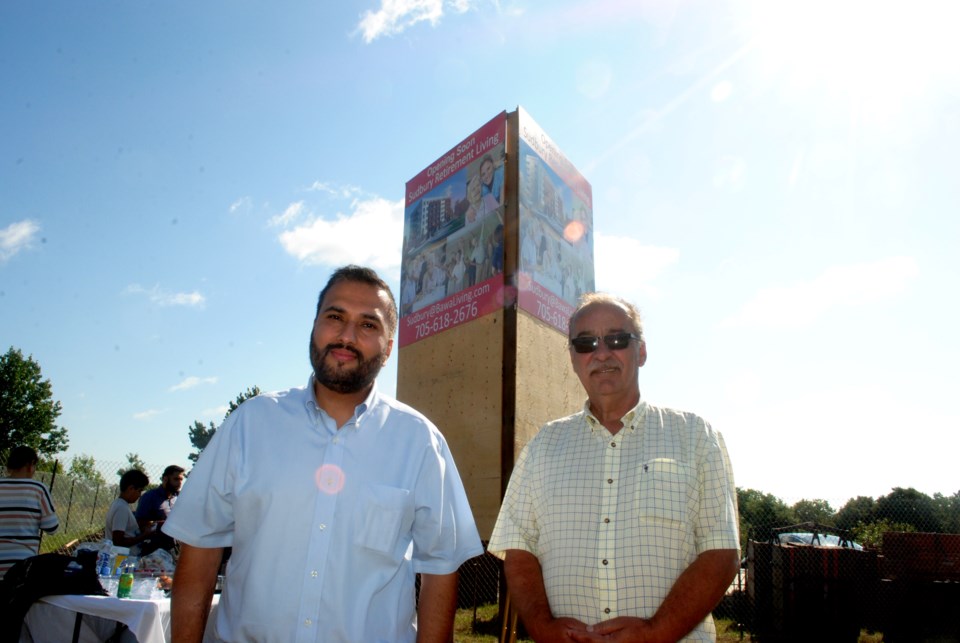The deferral of development charges appears to have proven popular in Greater Sudbury. Approximately 19 projects have applied for the municipal program since it came into play last year.
Among the largest of these developments is a 137-unit assisted living facility that broke ground in August on Second Avenue North in the city's east end.
At the time, developer Danny Bawa commended the city for being “very helpful in every part” of the project, including the deferral of development charges for six years.
This was one of the early adopters of the program, said Guido Mazza, the City of Greater Sudbury’s building services director and chief building official.
“We’ve had a fairly good uptake,” he said, adding that his building services team has been working to promote the program, which city council members adopted in June 2020.
This followed the province changing the Development Charges Act of Ontario on Jan. 1 of that year to allow municipalities to adopt their own versions of a deferred development charges program.
Want to read more stories about business in the North? Subscribe to our newsletter.
Development charges are intended to help the municipality cover a portion of growth-related costs associated with capital infrastructure needs and are traditionally required from the developer before Mazza’s department issues them a building permit.
Current rates vary depending on the build and services available, but for a single-family dwelling with water and wastewater, the development charge is currently $18,910.
For apartments and small residential, the charge is $10,913 per unit, industrial is $3.16 per square foot and commercial/institutional is $4.74 per square foot.
Most of those who qualify for deferred development charges can have this cost spread out in six payments made over five years, with the first payment due when the building is approved for occupancy. Non-profit housing developers can make 21 payments over 20 years.
In conjunction with this change, the city also now allows for development charges to be set earlier in the process than before, at the date an application is filed rather than the date a building permit is issued.
“This particular government was looking to provide some incentives but also some certainty with respect to developers across the province,” Mazza said. He added that locking in prices has a lesser impact in Greater Sudbury than it might other jurisdictions, but could still carry impacts.
“When you’re in a hot area like the (Greater Toronto Area) where development changes can leap by a significant amount it can impact the business plan or a financial business plan for a particular development,” he said.
Although Greater Sudbury’s development charges are more likely to change by only one or two per cent, he said “one or two per cent on a large amount of money is … a significant amount of money.
“I think we’re … a bit of an anomaly from that perspective,” Mazza said, adding that he has received a number of inquiries from his counterparts in other jurisdictions who are curious as to whether what they’d heard about the city not charging interest was true.
Coun. Bill Leduc, whose ward includes the 137-unit assisted living facility that broke ground in August, said the zero per cent interest rate made sense for the situation.
“Charging someone interest on future money I don’t believe is right,” he said.
“To promote things and to show we’re open for business we’re better off to waive the interest charges to get people investing into our city without being penalized for any type of development.”
The deferred development charges program is another way this city council has worked toward spurring development, Leduc said. It allows developers to be in a better cash flow position to more quickly proceed with their list of projects.
The assisted living facility, for example, is Toronto-based Bawa Hospitality Group’s first project in Sudbury, and owner Danny Bawa indicated at its groundbreaking that more local projects would follow.
Deferred development charges “gives the developer the opportunity to invest his money elsewhere to create other opportunities in development in the city,” Leduc said.
“If you’re putting out, for example, $100,000, half a million in development charges, that slows down your other developments moving forward.”
The City of Greater Sudbury has been lagging in its assessment growth when compared to other Ontario municipalities, and the topic of development and pandemic recovery factored heavily into Mayor Brian Bigger’s recent State of the City address.
City council has also cut development charges in half for certain developments along the major nodes and corridors throughout the municipality.
While certain pandemic-era obstacles have impacted the issuing of building permits, software upgrades and the creation of a one-stop shop currently under construction at city hall are intended to help expedite residents and developers navigate various areas of municipal bureaucracy.
“Once we have that one-stop-shop built we’re going to see another major improvement,” Leduc said. “I think we’re moving in the right direction as a city. … I’m sure we could make other improvements -- tweaking the system to make it more efficient.
“Can we do better? Absolutely, we can always do better, and that will come in time.”
The $62-million Extendicare long-term care home in the city’s south end on Algonquin Road also qualified for the deferred development program.
- Sudbury.com




